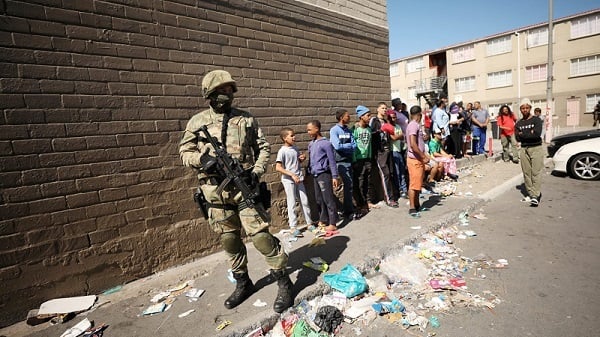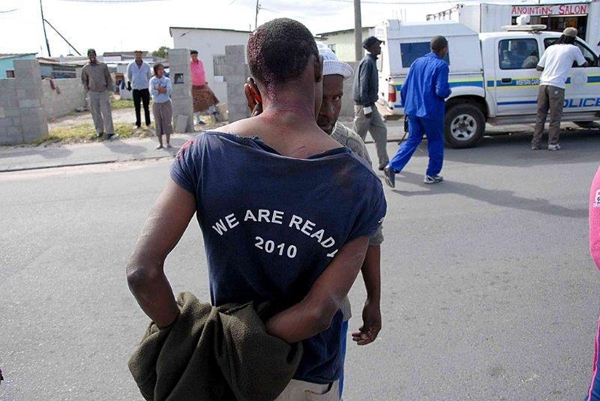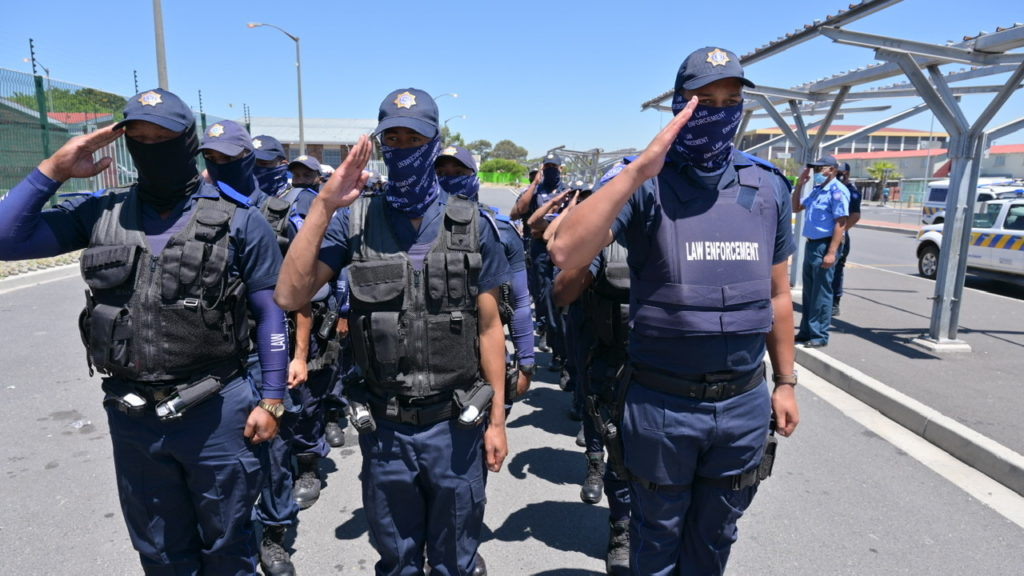
The increasing level of crime in Tshwane and Cape Town is becoming a more troubling phenomenon, causing concern among both local residents and authorities. Recent reports indicate a noticeable rise in criminal activities, including robberies, assaults, and thefts, posing significant challenges for law enforcement agencies and threatening public safety. This alarming trend calls for immediate action from authorities and public organizations to develop effective strategies to combat crime and protect the rights and interests of citizens.
The administration of both cities, Tshwane and Cape Town, has been cited as a contributing factor to the rise in crime. Critics point to issues such as inadequate law enforcement resources, ineffective urban planning, and socioeconomic disparities exacerbated by government policies as key factors fuelling the increase in criminal activities within these urban areas.
CRIME IN TSHWANE
Tshwane has become a glaring example of the failure to curb violent crime rates, with a significant increase in armed robberies, hijackings, and kidnappings. Despite high-profile efforts, such as those announced by Police Minister Bheki Cele, which included equipping the police force with additional resources and a fleet of cars, the measures have so far fallen short of reversing the crime trend. The city's police stations, especially those in areas like Temba, Akasia, Pretoria Central, Brooklyn, Mabopane, and Soshanguve, find themselves among the top 30 challenged by crime, according to the latest crime stats.
The period from October to December of the 2023/2024 financial year has seen an unsettling rise in violent crimes, with kidnappings becoming a particular concern. Despite over 300 arrests related to these crimes in the last two years, their persistent occurrence, alongside an overall increase in violent incidents, calls for a more nuanced and comprehensive approach to crime prevention.
RISING CRIME IN THE WESTERN CAPE: A REFLECTION OF MALGOVERNANCE
Western Cape is suffering from a disturbing rise in crime rates that has left its residents grappling with fear and uncertainty. The province, has witnessed an unsettling spike in various forms of crime, casting a shadow over the party's ability to ensure the safety and security of its citizens. The first quarter of the 2023/2024 financial year brought with it a mixed bag of crime statistics that offer a glimpse into the complexity of criminal activity in the region. While Provincial Police Commissioner Maj-Gen Tembekile Phathekile and officials like Premier Alan Winde and police oversight MEC Reagan Allen paint a picture of gradual improvements in some areas, the stark reality of increased shoplifting by 15.3%, kidnapping by 3%, and a 4.6% rise in robbery with aggravating circumstances paints a different picture.
THE AUTHORITIES' RESPONSE TO CRIME
Gang violence has been a thorn in the side of the Western Cape government and police force, contributing to sleepless nights and a state of perpetual unease among the populace. Despite efforts to curb this menace, the province recorded gang-related incidents that resulted in the tragic loss of lives, including that of innocent bystanders, underscoring the pervasive and entrenched nature of gang activities in communities. The decrease in sexual offences and certain robbery categories does little to relieve the fears of residents when juxtaposed with the rise in other serious crimes. The Western Cape administration is being questioned as faces criticism for its handling of the crime situation. The measures taken, including the deployment of additional police resources and the utilization of technology like shot spotter acoustic devices and CCTV cameras, while commendable, seem insufficient in addressing the root causes of crime and violence in the province.
SHOCKING SURGE IN MURDERSThe rise in murders in the second quarter of the 2023/24 financial year by 10.9%, alongside an 18.6% increase in high-crime areas, signals a dire need for a re-evaluation of strategies and a more cohesive approach to crime prevention. The LEAP (Law Enforcement Advancement Plan) deployment areas, designed to target high-crime regions, have shown varying results, indicating that a one-size-fits-all approach may not be the most effective in combating crime across diverse communities. Furthermore, the reliance on community hotlines and increased police presence, while necessary, must be complemented by initiatives that address the socio-economic factors contributing to crime. Education, youth engagement, and rehabilitation programs offer a more sustainable path to reducing gang affiliation and criminal activities but require unwavering commitment and innovative thinking from the Cape government.
THE FUTURE OF CRIME IN THE WESTERN CAPE
In light of these challenges, the Western Cape's struggle with crime highlights a broader issue of mal governance under the Cape authorities. The city government efforts, though well-intentioned, have yet to translate into significant and lasting improvements in safety and security for all residents. As crime rates fluctuate and the spectre of violence looms large, the call for a more effective, holistic approach to governance and crime prevention becomes increasingly urgent.
As the Western Cape grapples with these realities, the need for introspection, accountability, and a renewed focus on community-based solutions is clear. Only through a concerted effort that goes beyond policing and tackles the root causes of crime can the province hope to achieve the peace and security its residents so desperately seek.
In conclusion, escalating crime rates in cities like Tswane and Cape Town spotlight the significant challenges facing their administrations and the authorities. Despite the deployment of additional resources and targeted operations aimed at curbing violent crime, the continuing rise in such incident’s paints a concerning picture of the efficacy of the current strategies. This situation subtly points to the need for a comprehensive reassessment of the approaches taken by the local authorities. It hints at underlying governance issues that necessitate immediate and focused attention, calling for a shift towards innovative, community-centric solutions to foster a safer environment for all residents
PROTECTION FEE / EXTORTION PROBLEM
On Sunday 04 February, a grade 12 learner Siseko Mkhize from Brown’s Farm area in Philippi, Cape Town was murdered by “protection fee” gang in front of his grandmother. This is after he was allegedly seen by the gang taking a video of them while walking on the streets with AK47.
An eyewitness Babalwa Govuza(46) from Siyahlala who saw the gang chasing Siseko said the gang was walking on the streets brandishing their huge guns. “The gang wanted to collect money from a nearby spaza shop and people were watching as they were shocked to see big guns. Siseko was also on the street with his phone in his hands. Some of the gang members who were in a Toyota Avanza that was following behind those who were on foot suspected that Siseko was taking videos of them. When they charged towards him, he ran away and they chased him into his house. They shot at him and in front of his grandmother and he died,” said Govuza.
A week later Prince Mkhize, the brother of the deceased boy was shot and killed during his brother’s funeral. The issue of gangs that are holding residents ransom demanding protection has become prevalent in Cape Town.




















